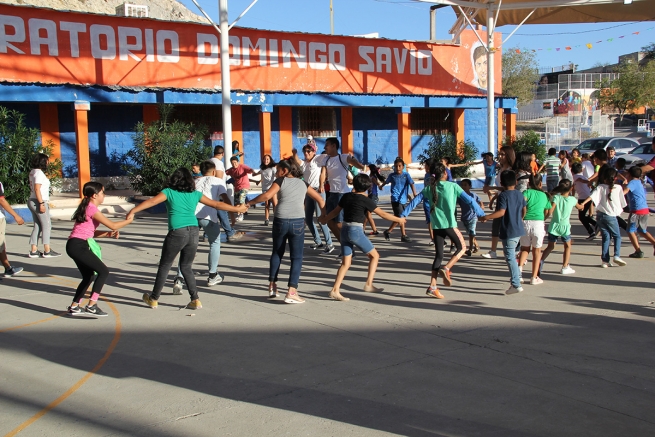"If Don Bosco was in the oratories of Ciudad Juárez, he would be without a cassock and sunburned, but he would undoubtedly like seeing the courtyards full and with activities suitable for children and young people of the 21st century," emphasizes Juan Carlos Quirarte, Salesian, who for seven years directed these centers in Mexico and who is now responsible for the Planning and Development Office of the Mexico-Guadalajara Province.
The Salesians arrived in Ciudad Juárez 28 years ago and built their first oratory, "San Juan Bosco", on land that was once a landfill. Years later, the "Domingo Savio" oratory arrived, practically dug on a rock, and finally the "Lupita", abbreviation of Our Lady of Guadalupe.
Ten years ago, Ciudad Juárez was the world's most violent city with more than 300 murders a month. Drug cartels, killers and migration had become a deadly mix for thousands of young people.
Oratories currently open their doors at 8.30 am and close late at night, offering a series of uninterrupted activities, seven days a week, 365 days a year. In the morning, activities and workshops are held for mothers while children are at school; in the afternoon, parents get a break, while children are entertained and offered a chance to learn. There are sports schools, martial arts sessions for children and adults, dance, circus workshops, painting and writing workshops, skateboarding lessons, parkour, free-climbing, zip line and even a game of their own invention, the "three-way soccer", with three teams of three participants each, the team receiving the least goals winning.
Many of the children raised in the oratories are now the educators and volunteers who give life to the activities taking place throughout the city and which have also been exported to other parts of the country and the American continent. Don Bosco is still very much alive in the world, but in this border town of Mexico, in particular, children and young people from the peripheries have a guarantee of the future thanks to the tools provided by the Salesians.
by Alberto López, Misiones Salesianas


